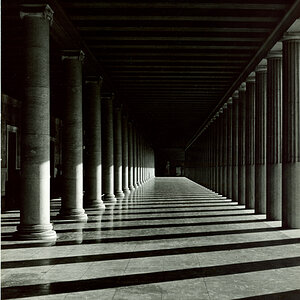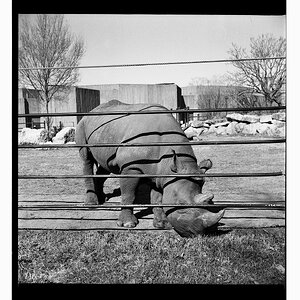William Petruzzo
TPF Noob!
- Joined
- Aug 22, 2008
- Messages
- 635
- Reaction score
- 2
- Location
- Washington DC
- Website
- www.petruzzo.com
- Can others edit my Photos
- Photos OK to edit
When I started my business about four or five years ago, I read in a number of places (like the PPA magazine) that it was bad form, and generally unwise, to give away the negatives along with the cost of a wedding or portrait package.
Today, I'm seeing more and more photography businesses giving away the negatives. Even the bigger agencies like The Pros or Bella Pictures are doing it as a standard feature in their packages. I'm torn now because it's hard to tell who is really a working professional and who is an amateur with a nice website. I mean, are these people giving away their negatives actually making money? Is it just the trend and I should follow it carefully and wisely, or should I hold my ground?
I'm pretty stressed about the whole thing. Anyone have some advice?
Today, I'm seeing more and more photography businesses giving away the negatives. Even the bigger agencies like The Pros or Bella Pictures are doing it as a standard feature in their packages. I'm torn now because it's hard to tell who is really a working professional and who is an amateur with a nice website. I mean, are these people giving away their negatives actually making money? Is it just the trend and I should follow it carefully and wisely, or should I hold my ground?
I'm pretty stressed about the whole thing. Anyone have some advice?



![[No title]](/data/xfmg/thumbnail/30/30886-4d4f2b370f36c175a23901cc8689aea4.jpg?1619734498)



![[No title]](/data/xfmg/thumbnail/39/39439-d0a6beaaf39993860b74ccbd81fdd122.jpg?1619739032)


![[No title]](/data/xfmg/thumbnail/42/42021-ffc326f5dc5b4c65ce53935e6e9e4338.jpg?1619739980)


